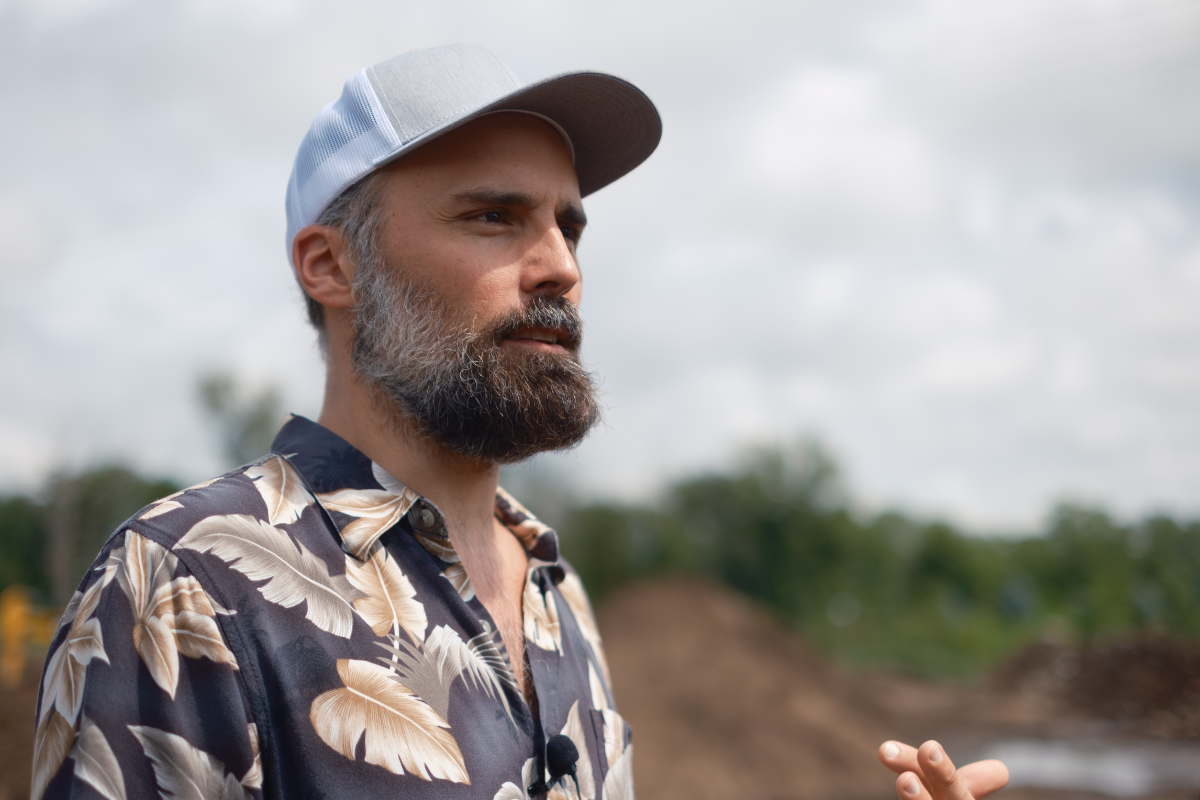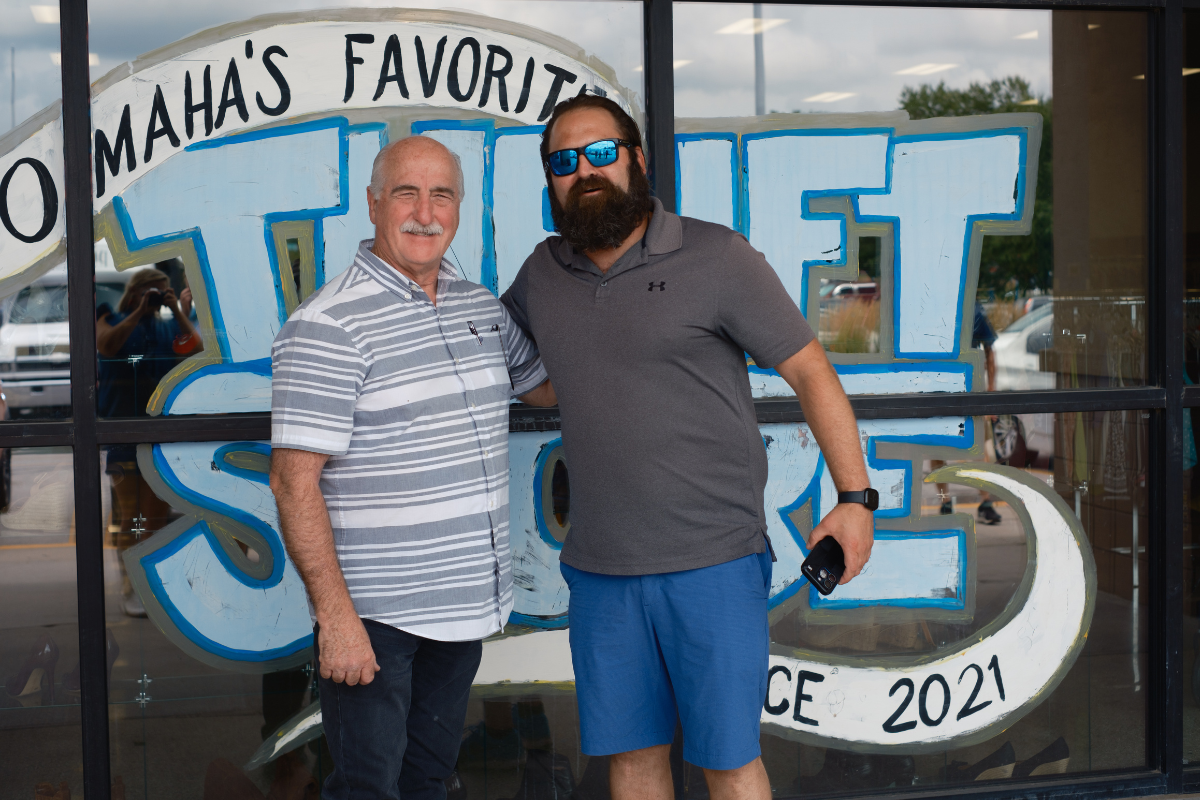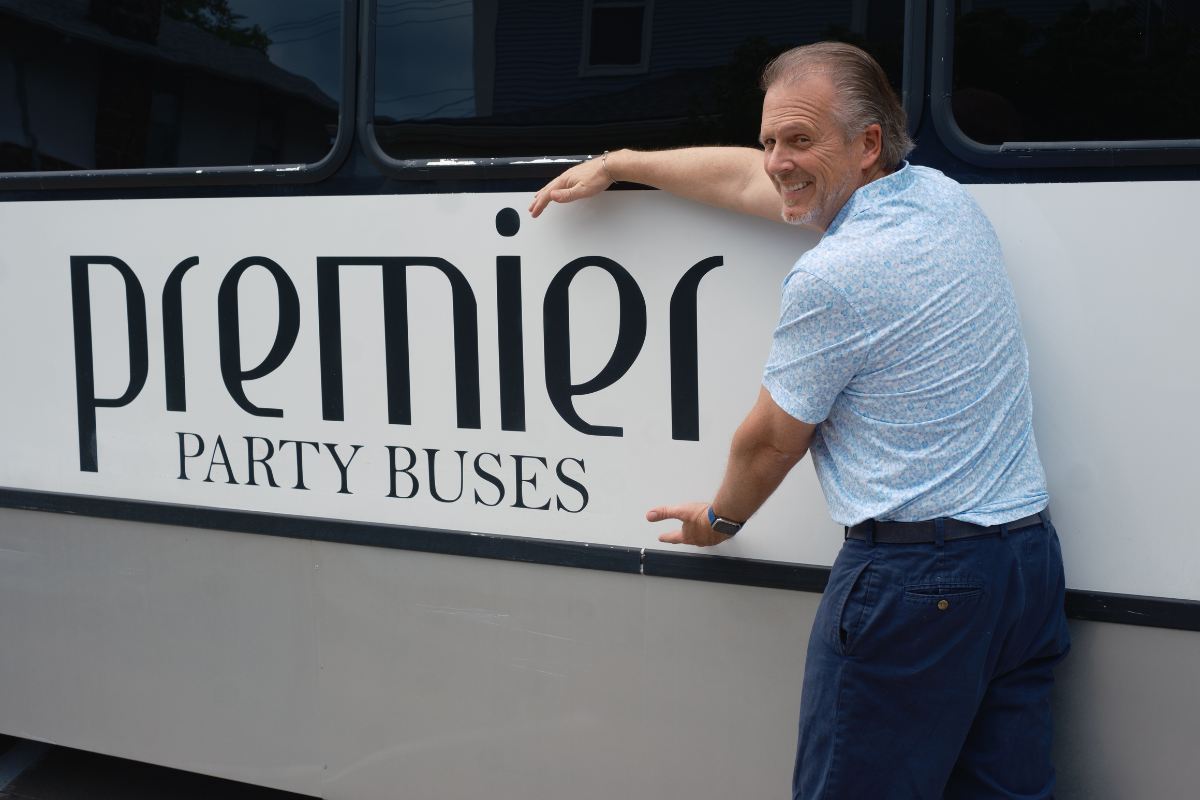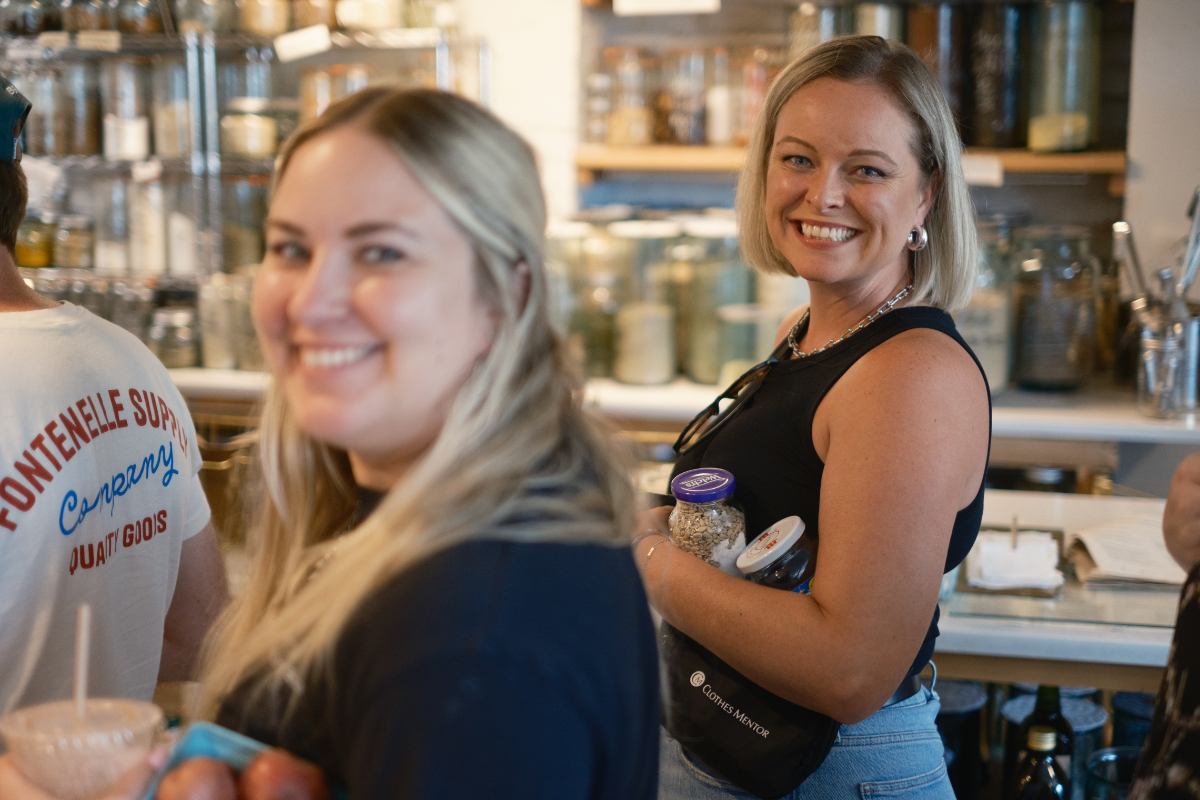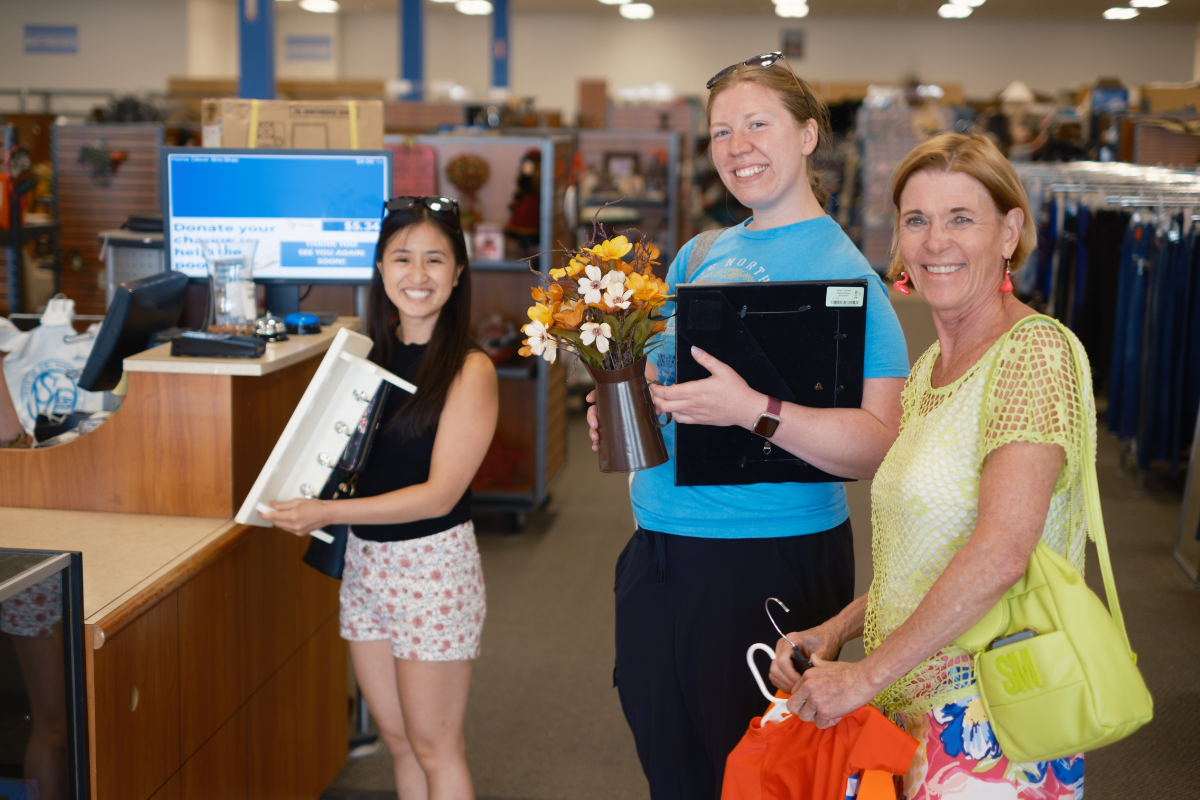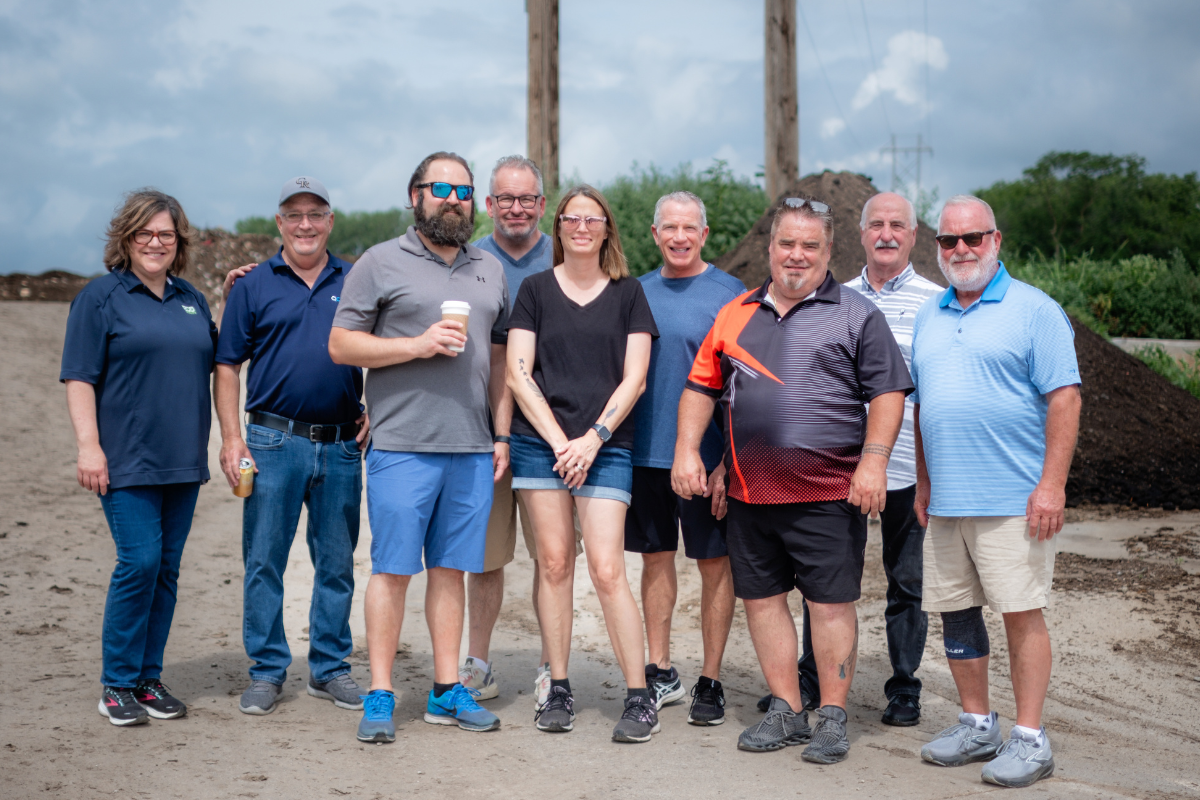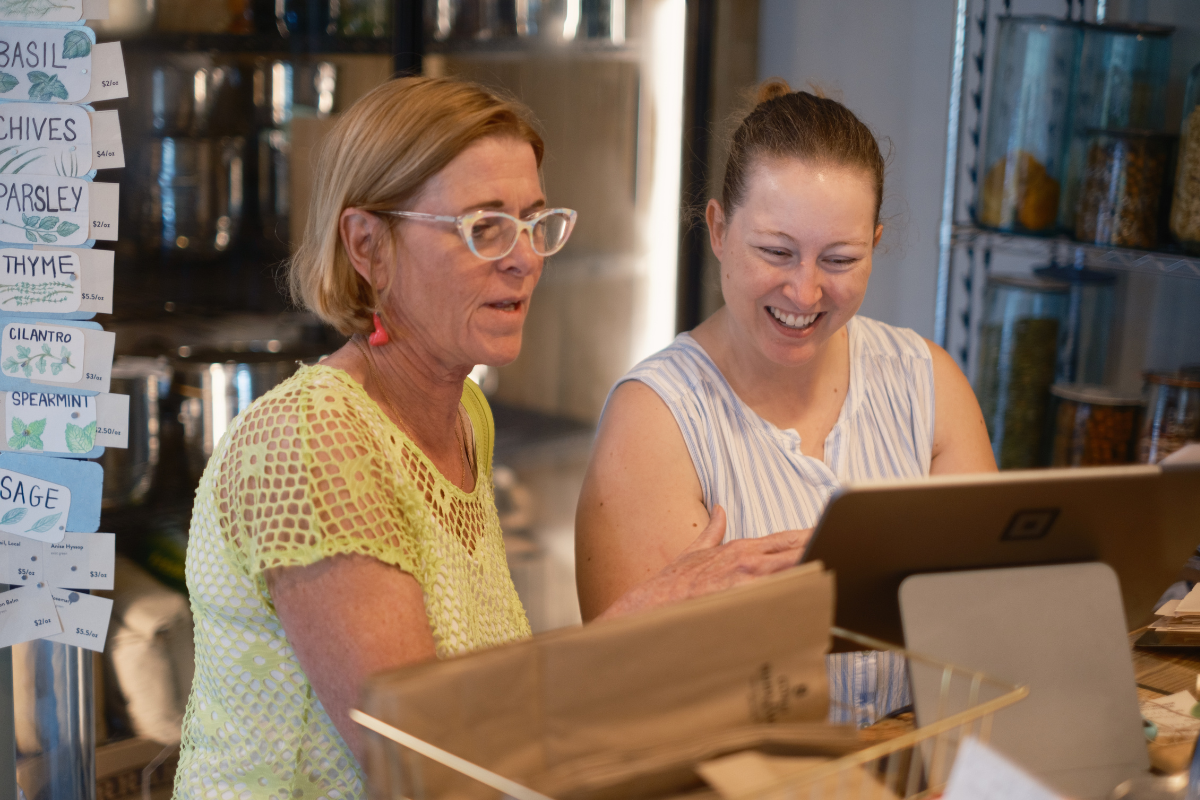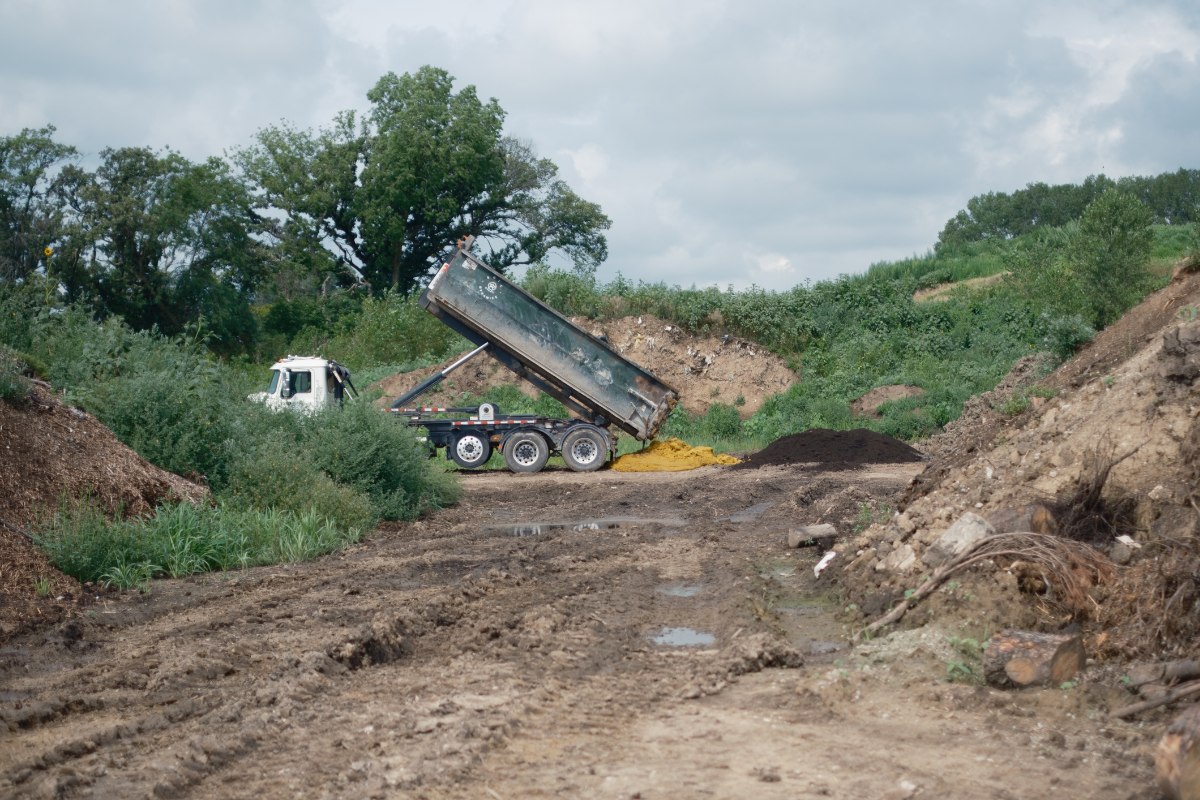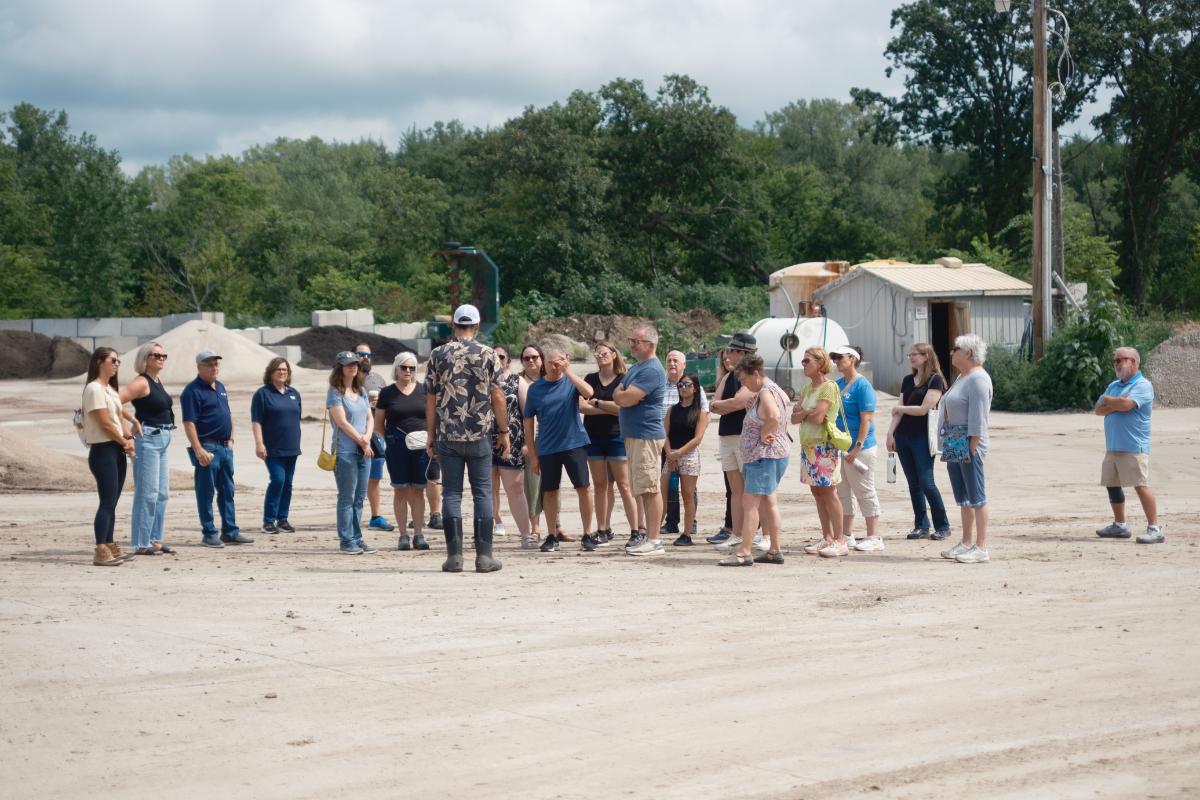Compost, Coffee, and Conscious Shopping - All in a Day’s Ride
We Took a Bus Tour - Here’s What You Can Learn From It
What’s an eco bus tour, you ask? It’s exactly what it sounds like: a guided group trip to some of the coolest, most sustainable spots around town. It’s part field trip, part community hangout, and part wake-up call—all packed into one day. Our goal? To show people that sustainability doesn’t have to be boring, judgmental, or overwhelming. It can be approachable. Inspiring. Even fun.
At the end of July, we filled a bus with 30 people—some of whom flew in just to join us—and set out on a one-day adventure around Omaha. From thrift shops to compost piles, we explored the real-world ways our community is changing how we deal with waste, consumption, and the choices we make every day.
Here’s where we went—and what it taught us:
Secondhand fashion keeps waste out of landfills by extending clothings life, reducing textile waste and cutting production demand.
Our day started at Clothes Mentor, a women’s resale shop. Buying secondhand is one of the easiest ways to reduce waste, and this place proves you don’t have to sacrifice style to be sustainable. Instead of feeding fast fashion, you’re keeping clothes in use longer and giving them another life. It’s often cheaper and more stylish than buying new.
Secondhand fashion keeps waste out of the landfill in a few bigger ways:
Extends clothing’s life – Instead of tossing clothes after one season, resale keeps them in circulation for years.
Reduces textile waste – Clothing is one of the fastest-growing waste streams in landfills, and buying used directly slows that flow.
Cuts production demand – Every thrifted shirt or pair of jeans means one less new item that needs to be manufactured, shipped, and packaged.
Encourages reuse – It gives people a chance to see clothing as a resource, not a disposable item.
So essentially, every secondhand purchase diverts something from the trash pile and delays it from becoming waste altogether.
Shopping with intention feels better because you’re choosing what actually fits.
Next, we visited Eden’s Preserve - a boutique filled with earth-friendly home goods, skincare, and gifts. Shopping with intention feels better because you’re choosing what actually fits your values, budget, and needs, not just reacting to sales and trends. Here feels less like consumerism and more like care: for your body, your space, and the planet. We’re reminded shopping doesn’t need to feel mindless - it can be mindful.
Playin in the dirt is memorable and a barrier-breaker.
Then came the stop no one expected to love… the compost farm. At Hillside Solutions, trash becomes fun. Composting isn’t a smelly chore—it’s a system that turns food scraps into living soil and keeps thousands of pounds of waste out of landfills.
We keep it simple and hands-on: games, real-life tips, and yes - playing in the dirt. Touching soil, smelling compost, and seeing the process makes it real. What felt “gross” quickly turned into curiosity, laughter, and connection.
Compost here isn’t just explained—it’s experienced.
Every fork matters: each choice either fills a landfill or fuels a sustainable cycle.
We refueled at Rooted Table, where plant-based meals met real talk about food systems, thanks to a quick session from Jamie Brown at Eco-Products. Jamie’s our go-to rep who helps us bring compostable packaging to the businesses we work with at our waste hauling business. Through her presentation, we learned every fork matters by showing how compostable packaging (made from plants) fits into a closed-loop system. If you run a cafe, restaurant, or even hot events, your packaging choice either contributes to the landfill or helps build a sustainable cycle.
Interested in using Eco-Products for your business?
Reach out to Samantha Nieman at samantha@hillside.solutions to get started. Let’s do it!
Thrifting strengthens communities by keeping dollars local and lifting up non-profits.
Then it was back to thrifting at St. Vincent de Paul Thrift Shop - this time with purpose. We hunted for deals, supported a nonprofit, and gave clothes and household items a second chance at life. Around the racks, we talked about how shopping secondhand isn’t just about saving money - it’s about community care. Thrifting keeps dollars local, lifts up nonprofits, and makes everyday essentials more affordable for families. Each purchase is a tiny act of recycling - of goods, dollars, and goodwill - that flows right back into the neighborhood. It’s proof that shopping can be fun, sustainable, and impactful all at once.
Zero Waste isn’t about being perfect. Doing it imperfectly makes the most impact.
Located in Dundee, Exist Green taught us that zero waste isn’t about perfection or overhauling your life overnight.. It’s about using what you have, purchasing what you need and moving toward making impactful swaps over time. It’s can be intimidating at first, but this zero-waste shop showed us what’s possible: reusable goods, bulk refills, and sustainable swaps that actually work in real life.
Sustainability can be fun, practical and community-driven when we do it together.
By the end of the tour, what started as “just a fun, secondhand fashion store” became a lightbulb moment. Sometimes solutions to climate change aren’t all that complicated - they’re simple shifts, like buying used. And when you experience them all together, they feel a lot less intimidating. That’s our goal on the eco-bus - make it a fun learning experience.
This tour showed us that sustainability is already happening in our community - and it’s creative, hands-on, and surprisingly joyful. When you meet the people behind it, ask the questions, and see it up close, things click. It becomes real.
We're not here to make anyone feel bad. We’re here to make them feel curious. Connected. And maybe even excited about compost. And yes - we’ll do it again.


